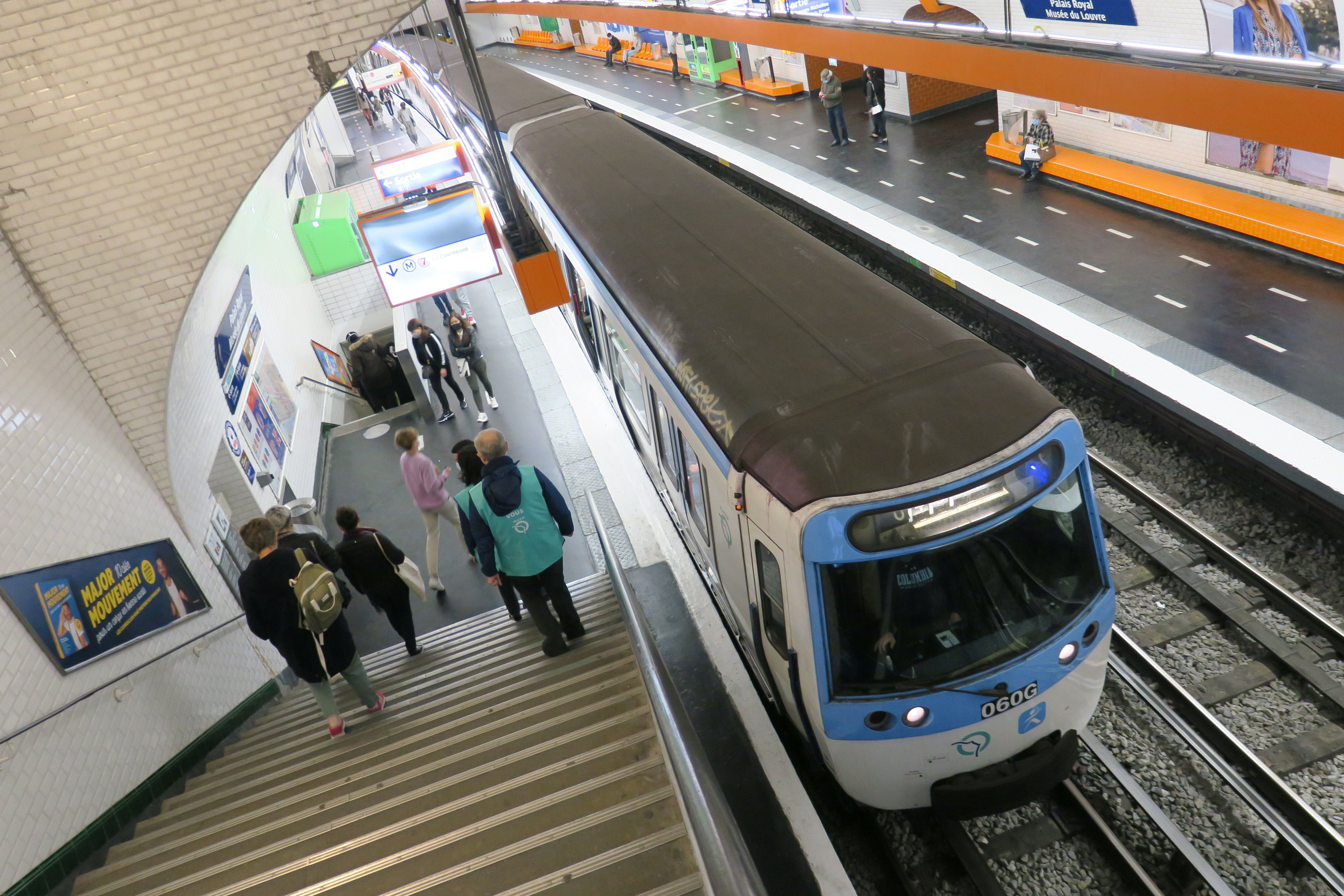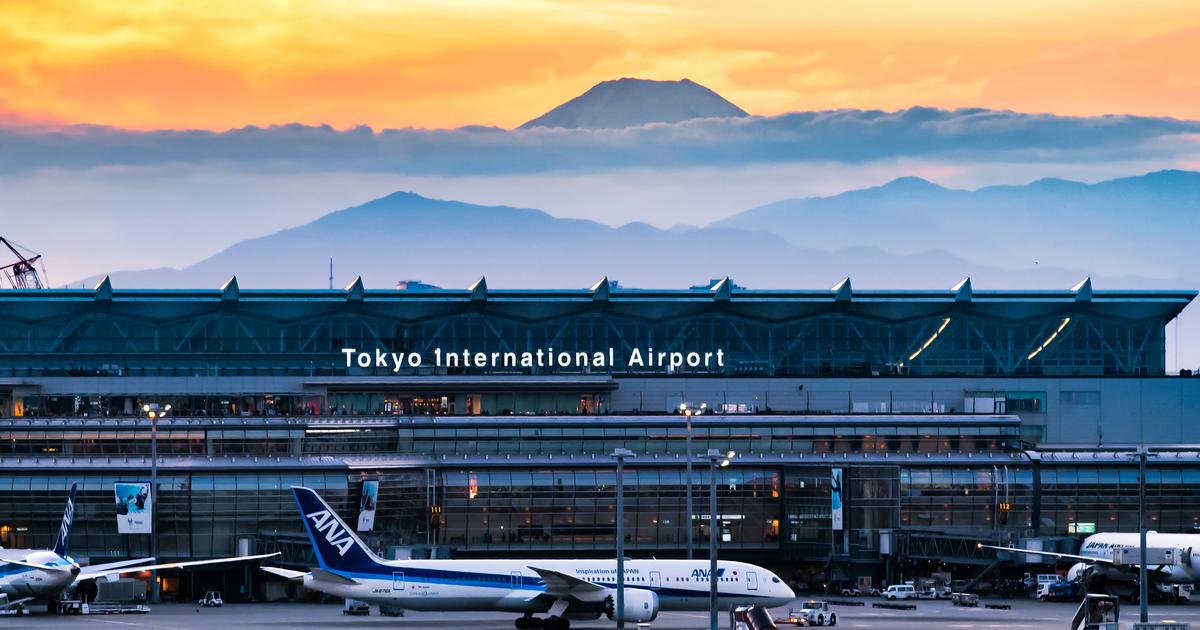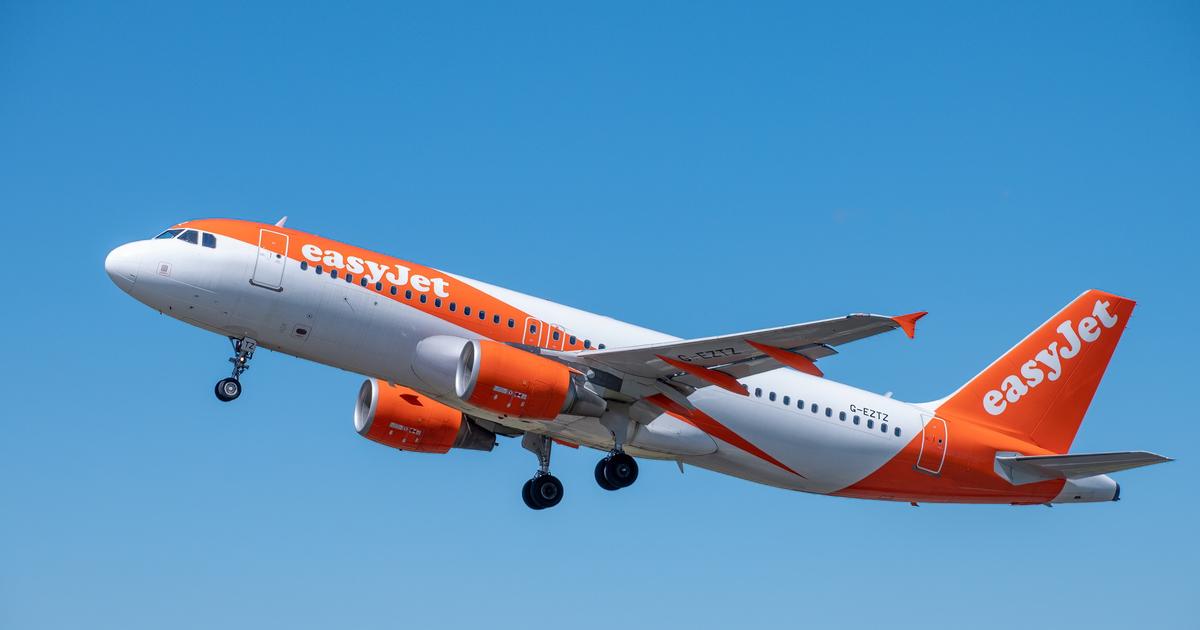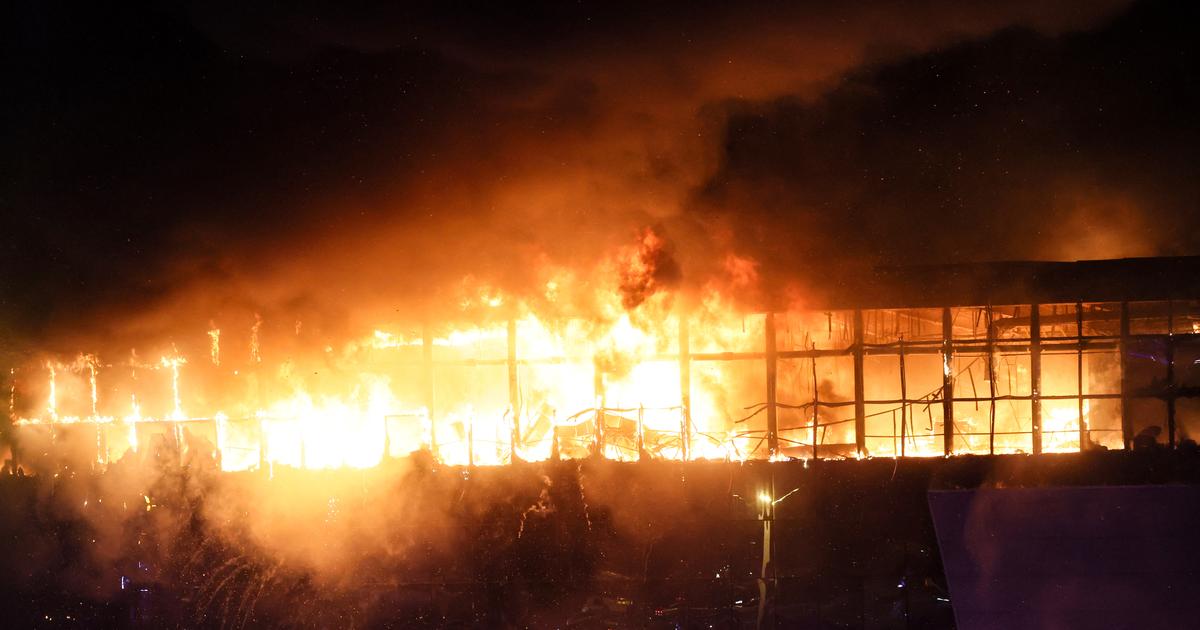Remember, that was almost a year ago, May 11, 2020. After two months of strict confinement, the government was implementing a series of unprecedented measures in public transport.
Compulsory mask, employer certificate at peak times, condemned seats and respect for the “physical distance” of one meter between each traveler: never before have users of the Paris metro known so many constraints for health reasons.
No one imagines then that this situation will last another year.
The most optimistic hope that the Covid-19 will only be a bad memory once the summer has passed ... At the start of September, the metro will regain 70% of its usual attendance.
But the following month, the curfew was introduced, followed by a second confinement.
No more commerce, no more musicians ...
Since then, 50% of regular users of Ile-de-France transport have disappeared.
That is to say nearly two million missing passengers on the RATP network!
Except very early in the morning or during rush hour on certain lines, it has become rare not to find a seat.
“Frankly, I love taking the metro when there are so few people.
It's a level of comfort that we didn't have before, ”notes Aurélie, an engineer crossed on line 7 in Villejuif.
On the other hand, the atmosphere is strange.
The users who remain faithful to the metro circulate in a maze of often empty and silent corridors.
Most of the shops are closed.
The musicians allowed in the hallways packed their bags in March 2020 and never returned.
Impossible to create crowds in times of Covid.
“I sang two or three afternoons a week in the metro.
It was my life, ”says Betty Seymour, an artist awarded by the RATP.
She now gives shows in retirement homes.
Collage of posters in a ... closed corridor
Silence is also Eric's new environment, a poster glider.
On the walls of Port-Royal, images extolling the merits of regions such as Creuse, Touraine or Gers have taken over from the announcements of shows.
That morning, Eric has to stick a giant poster of home-delivered pizzas.
The corridor in question leads to the Carrousel du Louvre and it is….
closed to the public.
The poster is still placed, to be visible when it reopens.
For a year, Eric's activity has fallen sharply.
"We are nine employees, half of whom are technically unemployed," says the poster collector, whose family has been in the business for 50 years.
Half of Eric's team, poster maker, is still on short-time work.
Sebastian COMPANION
In the evening, the calm and tranquil atmosphere that reigns in the metro takes on yet another, more disturbing turn.
After the 7 p.m. curfew, deserted areas generate a feeling of insecurity.
There are no more assaults or incidents than before.
But the feeling of isolation of travelers fuels a certain fear.
“During the day, I don't mind that there aren't many people around.
On the other hand, in the evening, there are sometimes only men or homeless people… My perception changes and I am really not at ease.
I prefer to avoid and take a taxi, ”admits Léa, a student.
Read also Transport safety: soon a single command post in Ile-de-France
“One evening, after the curfew, I was coming home from work and I found myself alone in the train with a guy who obviously didn't have all his head, remembers Frédéric, 56 years old.
I was on my guard, not reassured.
When I got down, I passed a young woman who was going up.
Luckily the guy got off too.
"
Fewer travelers but more arrests
Stéphane Gouaud, the director of security at RATP, is well aware of the phenomenon.
“Public transport is the last welcoming place in the world,” he says.
Museums, restaurants, bars, everything is closed and tourists have disappeared.
The pickpockets are therefore still there and prey on local travelers.
They target cell phones in particular, which are sometimes worth 1000 euros.
"
Last summer, more violent attacks, such as tearing off jewelry, were noted.
The police and the 1000 agents of the Network Protection and Security Group (GPSR)
have strengthened their coordination in order to “project themselves” as quickly as possible and apprehend thieves.
"Although there are fewer travelers, there are more arrests", welcomes Stéphane Gouaud.
In the SUR PC, at Gare de Lyon, RATP GPSR agents process alerts triggered in the field by station agents or bus drivers.
On the small screen, an excited individual knocks on the window of the counter.
A few minutes later, four agents of the GPSR come to cool his enthusiasm.
Sébastian Compagnon
Twice the cleaning
Throughout this period, all RATP agents had to constantly adapt and change their working methods. The emphasis is on the “reassurance” of travelers by multiplying the rounds. At the Palais-Royal station, the proximity of the Louvre and the Comédie Française used to generate comings and goings at all hours in the nine entrances and exits. 70% of travelers were tourists. But on this weekday morning, the platforms of lines 1 and 7 are almost deserted. "Today, we have above all a local clientele", notes Rachida Touissa, team manager on line 1.
Same change of atmosphere at Porte-de-Saint-Cloud station, on line 9. Usually, twice a week, this station welcomed spectators going to the Parc des Princes stadium. “On match nights, 10,000 to 15,000 travelers per hour passed through Porte-de-Saint-Cloud. We mobilized up to 20 agents to channel the flows ”, testifies Yann Gérard, the manager of line 9. These agents have partly integrated the new“ multi-line teams ”, created last year to reassure travelers by circulating on the network in order to provide visibility.
Another novelty linked to Covid-19: everywhere, employees of subcontracting companies regularly disinfect the “contact areas” on ticket machines.
They also take care to fill the 800 hydroalcoholic gel terminals present throughout the network.
Cleaning and disinfection is the big business of the year at RATP.
The budget for hygiene has doubled.
Among the major novelties: the daily disinfection of each of the buses, metro and trams.
Read also Disinfection: an anti-Covid shield for Rouen buses
Will these human and financial efforts make it possible to attract again the two million users who have evaporated?
Until when will they shun public transport?
The forecasts differ.
The boss of the RATP, Catherine Guillouard, believes that after the crisis, attendance will return to its usual levels, due to the extension of the network (Grand Paris Express and extension of metro lines).
But his counterpart from SNCF Transilien, Sylvie Charles, judges on the contrary that teleworking will permanently limit the number of home-work trips and general crowds.
Everyone agrees in any case on one point: travelers will no longer support the extreme saturation which had become the standard on many lines.
The atmosphere in the metro should never be really the same ...









